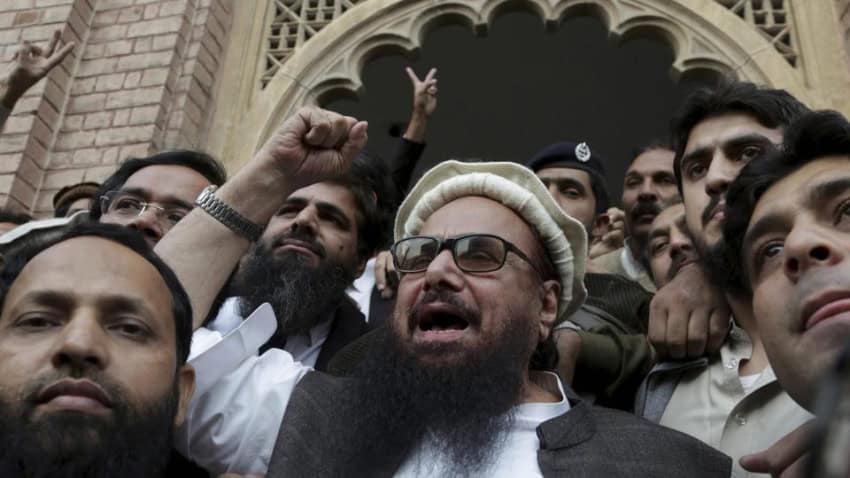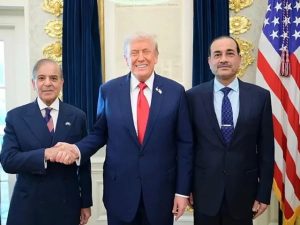LAHORE – A review board comprising judges of the Lahore High Court (LHC) on Wednesday ordered the release from house arrest of Lashkar-e-Taiba founder Hafiz Saeed, who pledged that he and his followers in the Jamaat-ud-Dawah (JuD) will play a strong role for Kashmir’s independence.
The Punjab government had sought a three-month extension in Saeed’s detention but the request was turned down by the judicial review board.
Reports said the JuD chief is scheduled to be released on Thursday. He had been placed under house arrest in January.
“The government is ordered to release JuD chief Hafiz Saeed if he is not wanted in any other case,” said the review board comprising judges of the Lahore High Court.
In a video tweeted by a handle linked to the JuD hours after the board issued its order, Saeed blamed India for his detention and vowed to work for “Kashmir’s independence.”
https://twitter.com/JamatUdDawaPak/status/933304251882885120
“The representatives and officials of the government and ministries were all saying that I should not be freed but the judges heard all their arguments and set them aside and ordered my release,” he said.
“This is the victory of Pakistan’s independence and, God willing, Kashmir too will become independent because I’m fighting the case of Kashmir,” he added. “It is because of Kashmir that India is after me but all its efforts have been in vain.
“I pray to God to help me and…members of JuD that we can play a strong role for Pakistan’s independence and Kashmir’s independence.”
During a hearing by the review board on Tuesday, the Punjab government said Pakistan might face sanctions from the world community if Saeed is released.
Saeed, through his lawyer AK Dogar, had challenged his detention and contended that requirements laid down by the Supreme Court had not been fulfilled.
According to the law, the government can detain an individual for up to three months under different charges but an extension in the detention requires approval from a judicial review board.
“The review board of the Lahore high court asked the Punjab government to produce evidence against Hafiz Saeed for keeping him detained but the government failed,” Dogar said.
“The court today said that there is nothing against Saeed, therefore he should be released.”
Saeed has denied involvement in the 2008 Mumbai attacks, during which a 10-member LeT team killed 166 people when they targeted two hotels, a Jewish centre and a railway station.
On January 31, Saeed and four aides – Abdullah Ubaid, Malik Zafar Iqbal, Abdul Rehman Abid and Qazi Kashif Hussain – were detained by the Punjab government for 90 days under the Anti-Terrorism Act 1997.
Saeed’s aides were freed in the last week of October after the Punjab government did not extend the notification for their detention under the Anti-Terrorism Act and withdrew an application pending before the federal review board.
US reaction:
A US state department spokesperson said: “The US is aware of media reports regarding Pakistan’s ordered release of Lashkar-e-Tayyiba leader Hafiz Saeed from house arrest.”
The spokesperson reiterated that the LeT is a “designated Foreign Terrorist Organisation responsible for the death of hundreds of innocent civilians in terrorist attacks, including a number of American citizens.”
“In May 2008, the US department of the treasury designated Saeed as a Specially Designated Global Terrorist under Executive Order 13224. Saeed was also individually designated by the UN under UNSCR 1267 in December 2008 following the November 2008 Mumbai attack,” the spokesperson added.
The spokesperson said the LeT and several of its front organisations, leaders and operatives “remain under both state department and treasury department sanctions.”














